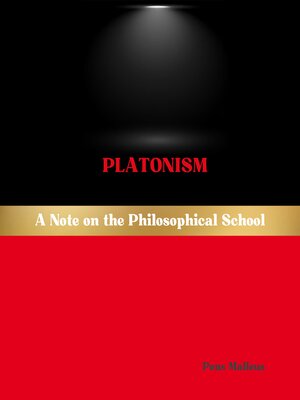Platonism
audiobook (Unabridged) ∣ A Note on the Philosophical School · Western Philosophical Schools
By Pons Malleus

Sign up to save your library
With an OverDrive account, you can save your favorite libraries for at-a-glance information about availability. Find out more about OverDrive accounts.
Find this title in Libby, the library reading app by OverDrive.



Search for a digital library with this title
Title found at these libraries:
| Library Name | Distance |
|---|---|
| Loading... |
This audiobook is narrated by a digital voice.
Platonism, one of the most enduring and influential philosophical traditions in Western thought, began over two millennia ago in the intellectual ferment of Classical Athens. What started as the teachings of one man—Plato—soon evolved into a rich, complex lineage of inquiry that spanned centuries, inspired generations, and left an indelible mark on metaphysics, epistemology, ethics, politics, and theology. This audiobook is a journey through that tradition, focusing not only on Plato's original insights but also on the dynamic evolution of Platonism through the Old, Middle, and New Academies.
The story begins with Plato himself, whose dialogues remain among the most enigmatic and profound writings in the history of philosophy. Rather than presenting a system of doctrines, Plato invites us into a dialectical process—one that seeks truth through dialogue, introspection, and reason. In his Academy, the first institution of higher learning in the West, Plato laid the foundation for what would become a vibrant school of thought—a community of thinkers bound by shared questions, methods, and ideals.
The Old Academy, led by Plato's immediate successors such as Speusippus and Xenocrates, preserved and extended his teachings. While remaining loyal to many of his central ideas, members of the Old Academy explored mathematical and metaphysical systems in ways that both clarified and transformed their master's thought. Over time, however, the certainty that marked the Old Academy gave way to the skepticism of the Middle Academy, particularly under the leadership of Arcesilaus. who reoriented the Academy toward a more critical, Socratic stance. The New Academy, beginning with Carneades, continued this skeptical trajectory while engaging rigorously with contemporary Stoic and Epicurean thought.







